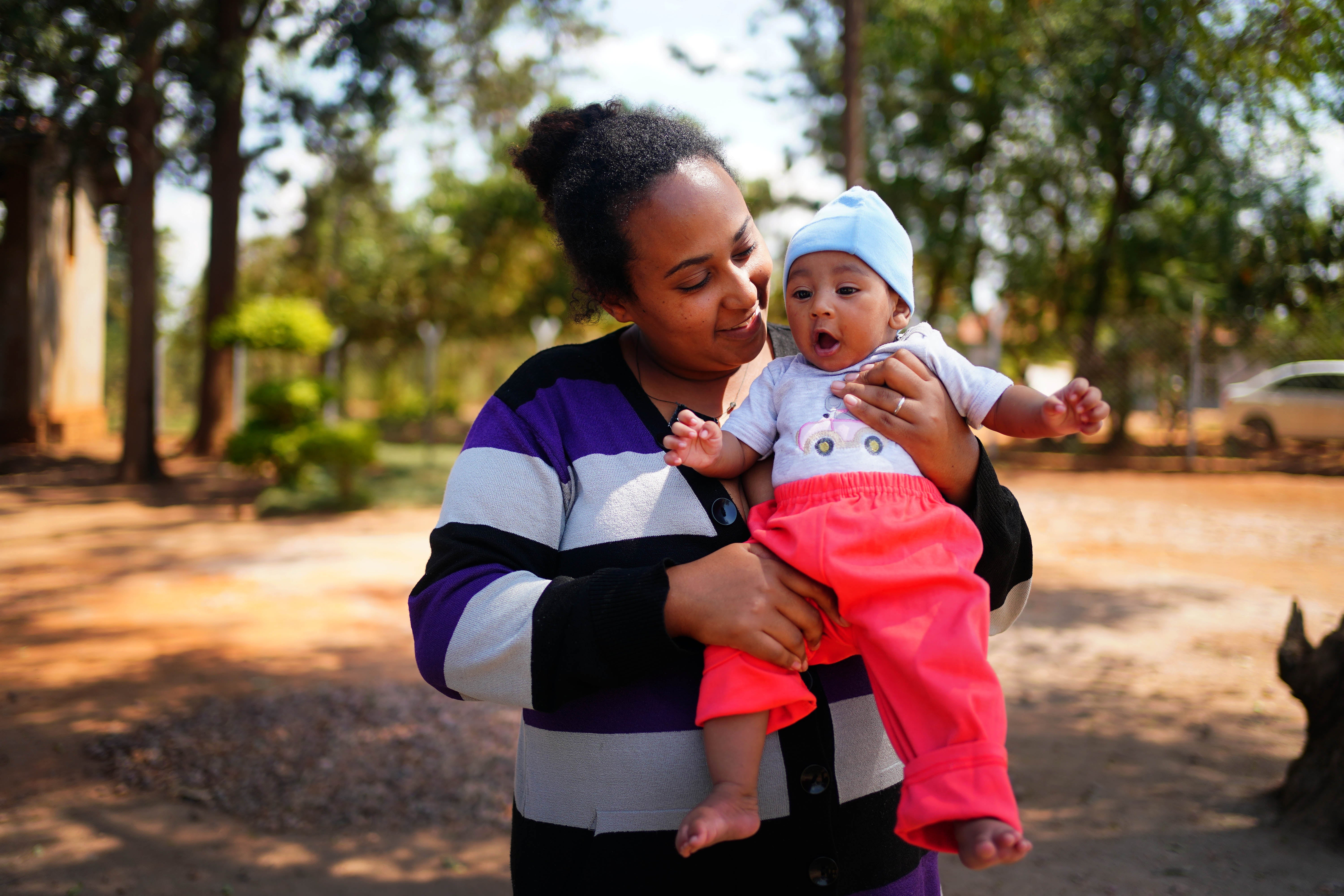Residents at Rwandan refugee camp seek safety and a future for their children
With its own security team and police on site, the camp is operated by the UN’s refugee agency the UNHCR.

Your support helps us to tell the story
From reproductive rights to climate change to Big Tech, The Independent is on the ground when the story is developing. Whether it's investigating the financials of Elon Musk's pro-Trump PAC or producing our latest documentary, 'The A Word', which shines a light on the American women fighting for reproductive rights, we know how important it is to parse out the facts from the messaging.
At such a critical moment in US history, we need reporters on the ground. Your donation allows us to keep sending journalists to speak to both sides of the story.
The Independent is trusted by Americans across the entire political spectrum. And unlike many other quality news outlets, we choose not to lock Americans out of our reporting and analysis with paywalls. We believe quality journalism should be available to everyone, paid for by those who can afford it.
Your support makes all the difference.Mothers living with their babies in a refugee camp in rural Rwanda have told how they want a “safe” and successful future for their children.
Some 83 children are living in the Gashora Refugee Camp Transit Centre at the moment, of which 34 are girls.
More than a third of the children (36) are aged four or under, according to officials. Since the camp opened in 2019, 14 babies have been born there, including an Eritrean two weeks ago.
Overall, 457 people are living in the camp, of which 249 are men and 125 are women.
Some 36 miles south of the east African nation’s capital city Kigali, the fenced camp is found off a dirt track overlooking countryside and farmland near Lake Miravi.
With its own security team and police on site, the camp is operated by the UN’s refugee agency the UNHCR, with the Rwandan government and the African Union (AU).
It provides short-term accommodation and support to people evacuated from Libya after fleeing persecution in their home countries while they await resettlement.
There has been speculation that migrants being sent from the UK could end up in the camp, but the Rwandan government insists this is not the case.
The administration regards its Libyan programme as a success story demonstrating its commitment to helping refugees.
Some of those housed there could end up in the UK – as well as France, Sweden and other European countries or Canada – if they have qualified for the programme and are approved for resettlement.
Refugees living there could also opt to return home or settle down in Rwanda.
Around 1,075 people have been evacuated from Libya since the camp’s inception, including those fleeing persecution in Eritrea, Sudan, Chad and Somalia.
The refugees typically stay there for between three and six months while they are processed and their resettlement plans are finalised, but it could take longer.
Entsar Tsagai and her 18-month-old daughter Sundus have been living in the camp for two months, having fled to Libya from Eritrea.
The 31-year-old told the PA news agency: “I was scared when I left my home but I feel safe here.”
Asked where she would like to live, or if she would like to come to the UK, she said: “I just want a safe country. The first thing I want is for my baby to be safe and for my baby to have the chance to learn.”
Fellow Libyan evacuee Meseret Girmy, 24, and her three-month-old son Amin – who are also from Eritrea – have been in the camp for around eight weeks.
She said she left her home because there was “lots of fighting and it was not good”, and while she does not know what the future holds, she feels “safe” in the camp.
Both woman said they would opt to leave Rwanda.
A new accommodation block, called Ikaze Residence which means “welcome”, opened earlier this year providing basic but clean communal living – with around four bunk beds to a room and two or three rooms per dormitory, including kitchen and bathroom facilities as well as a lounge.
Older accommodation blocks provide single rooms and space for families.
Abdallah Mohamed, 28, who arrived two weeks ago after fleeing war in Sudan, said he dreamt of starting a new life in the USA.
“I want to become a businessman, working in technology,” he said.
When reporters arrived at the site on Wednesday, a live performance of the Alicia Keys hit If I Ain’t Got You was taking place as part of a music therapy session.
Psychologists supporting the residents said this, and other activities, help people come to terms with their traumatic experiences.
The refugees have access to televisions, reading material, internet, legal advice and can phone relatives.
There is a health centre, a children’s playground, a gym and other sports activities like football, volley ball and table tennis.
The support is provided free of charge – with posters around the site warning those asked for money for services to call a dedicated hotline in a bid to crackdown on corruption.
Meanwhile the cafeteria, which provides three meals a day, was offering a cooked lunch including a chicken stew, chips, pasta and vegetables as well as freshly baked bread and watermelon.
The refugees are not required to work at the site, which is mostly staffed by locals. They are given a monthly allowance of 50,000RWF (around £40) and can leave the camp as they choose.